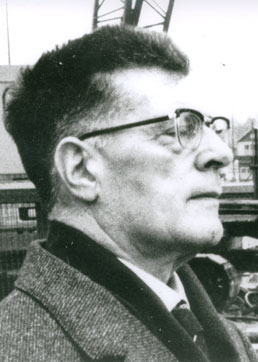films
THE PAST THAT LIVES

| Titre Original | THE PAST THAT LIVES |
|---|---|
| Titre traduit | |
| Réalisateur | BREGSTEIN Philo |
| Distribution | |
| Production | |
| Année | 1970 |
| Format | |
| Durée | 65' |
| Langue | Ang. |
| Musique | |
| Distinction | |
| Interprètes | |
| Résumé | Jacob Presser, le grand historien néerlandais est né à la fin du XIXe siècle au cœur du quartier juif d'Amsterdam. Il décrit les bouleversements considérables de l'histoire européenne de la première moitié du XXe siècle : la croissance de cette idéologie socialiste "vivifiante" et l'optimisme qu'elle a inspiré ; la terreur de la montée au pouvoir de Hitler ("la victoire de cet abîme") ; la destruction des 100.000 Juifs d'Amsterdam. Avec humour et tristesse, il raconte son enfance dans le ghetto, en tant que fils d'un pauvre tailleur de diamants, sa fascination pour le socialisme, l'Allemagne et la Renaissance, et son mariage de rêve alors même que le monde changeait rapidement autour de lui. Jacob Presser, the great Dutch historian, was born at the end of the nineteenth century in the heart of Amsterdam’s Jewish quarter. In The Past That Lives, Presser’s intensely personal narrative is embedded in the tremendous upheavals of European history in the first half of the twentieth century: the growth of "that life-giving" socialist ideology and the optimism it inspired; the terror of Hitler’s rise to power ("the victory of that abyss"); and the devastation of Amsterdam’s 100,000 Jews. With wit and sadness, Presser tells of his childhood in the ghetto, as the son of a poor diamond worker; his fascination with socialism, Germany, and the Renaissance; and his dreamy marriage even as the world was rapidly changing around him. Filmmaker Philo Bregstein interweaves this account with extensive Dutch and German archival still photography and film, to create a moving portrait to pre-war Amsterdam and its transformations. The persecution of Jews in Holland intensified; Presser’s students and eventually his wife were taken from him, and he went underground. In the post-war return to "normalcy," Presser attempted to make sense of his experiences by interviewing countless survivors of the Dutch holocaust and writing his masterpiece, Ashes in the Wind: The Destruction of Dutch Jewry. The book created a storm of controversy because it exposed many members of the Dutch bourgeois who collaborated with the Nazis. |
| Diffusion | |
| Lien film public | |
| Lien VOD membres | Login |
| Droit | 0 |
| Festival | |
| Genre | Documentaire Shoah |
| Auteur du Commentaire | |
| Commentaire d'Imaj |
Contactez-nous par mail à info@imaj.be ou par téléphone au 02 344 86 69 pour connaître la disponibilité de ce film.